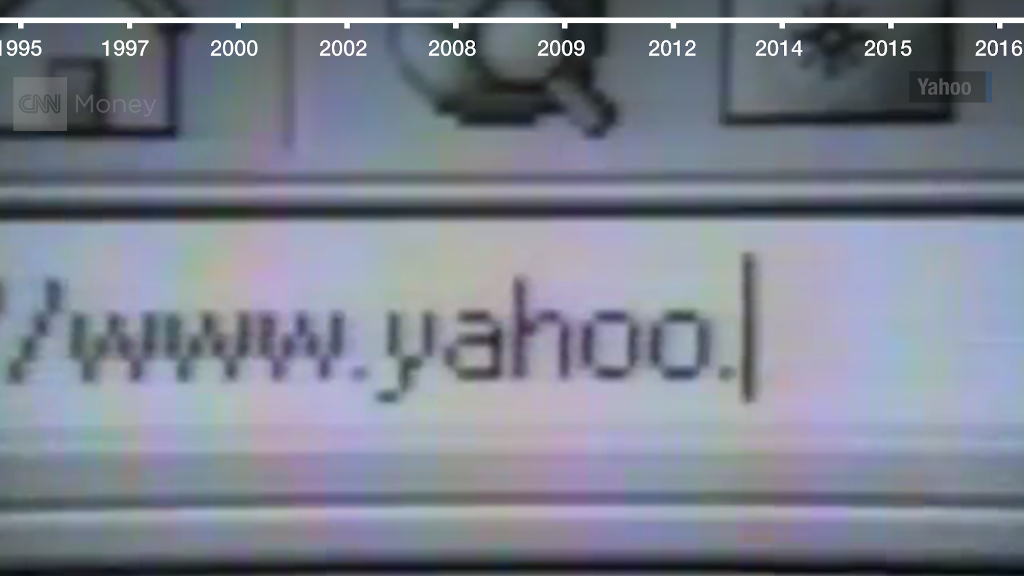
Wall Street has hung up on Verizon.
The stock is down more than 13% this year. That makes it the worst performer in the Dow. (Chevron, ExxonMobil, Goldman Sachs and GE have all fallen at least 10%.)
Investors are nervous about brutal competition in the wireless world. Verizon (VZ) lost subscribers in the first quarter. Earnings and revenue missed analysts' forecasts, too.
T-Mobile (TMUS) and Sprint (S), which are rumored to be considering a merger for what seems like the umpteenth time in the past few years, have both been aggressively pitching their unlimited calling, texting and data plans.
AT&T (T), of course, is also a tough rival in wireless. But AT&T is bulking up on content. It recently completed the purchase of satellite TV provider DirecTV and has followed up with plans to buy Time Warner (TWX), the parent company of CNNMoney.
Ma Bell's big deals have investors wondering whether Verizon will soon go shopping again.
There is rampant speculation that Verizon, which is on track to complete its purchase of the core assets of Yahoo (YHOO) later this month, may be looking to do even more deals.
The company has already scooped up AOL and plans to combine AOL and Yahoo under the curious name of Oath.
Related: Verizon loses wireless customers for first time
Verizon also recently won a bidding war for wireless spectrum holder Straight Path Communications (STRP), agreeing to purchase it last month for more than $3 billion.
But these deals aren't nearly as splashy as the mega buyouts that AT&T has put together. Yahoo has struggled mightily over the past few years to keep pace with Google (GOOGL) and Facebook (FB). And AOL is no longer a leader in digital advertising.
That's why there has been continued chatter that Verizon might want to go after cable giant Charter Communications (CHTR).
Verizon CEO Lowell McAdam fueled more rumors in April after he said in an interview with Bloomberg that he would be open to talks with Disney (DIS), Comcast (CMCSA) or CBS (CBS) if the heads of any of those companies called about a deal.
There have also been reports recently suggesting that Verizon might want to invest in online radio company Pandora (P) if rumored merger talks between Pandora and Sirius XM (SIRI) don't pan out.
Verizon had no comment about all the merger speculation. But in a presentation at a JPMorgan investment conference last month, McAdam dismissed talk of a major acquisition.
He said Verizon has "a big thing to chew on here with Yahoo" and that in the short run, Verizon would probably only do smaller content acquisitions, not a high-profile deal.
It's probably for the best that Verizon sticks to that plan. By avoiding a splashy (and expensive) acquisition that could lead Verizon to take on more debt, the company will probably remain one of the more stable telecoms.
Related: Yahoo and AOL will form new company called...Oath?
There also won't be any concerns that the company will have to slash its super-high dividend, which yields nearly 5%.
This big quarterly payout is a main reason conservative investors still like Verizon. It has the safety and predictability of a bond.
Craig Moffett, an analyst with research firm MoffettNathanson, wrote in a report about the telecom sector last week that Verizon is still attractive because of the dividend and its relatively cheap valuation. It trades for just 12 times this year's earnings forecasts.
But others argue Verizon is cheap for a reason: It isn't growing. Analysts are predicting profits and sales will fall slightly this year and be flat in 2018.
With that in mind, Verizon may still be tempted to do bigger deals (as AT&T has) in order to kick-start growth.
"We still believe there is a reasonable chance that Verizon does attempt a large transaction and do not rule out Charter," Walter Piecyk, an analyst with BTIG, said in a report last week.
So the jury is still out on whether Verizon should stay the course or go for broke with a much bigger acquisition.


